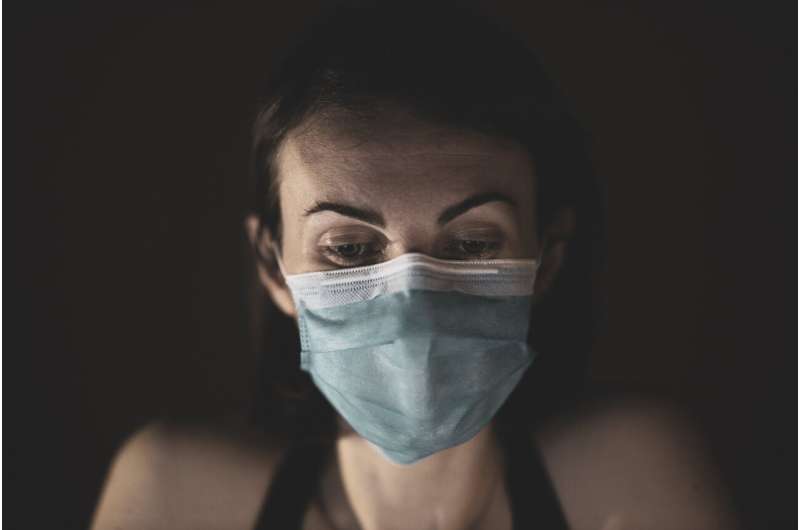
Until recently, the UK government limited a fourth dose of the COVID vaccine to people with severely weakened immune systems over the age of 16.
But, following a resurgence of COVID cases in the UK, the government has followed some other countries such as Israel, Germany and Sweden, and expanded the eligibility for a second booster shot. People aged 12 and over who have a weakened immune system, care home residents and people aged 75 and over are now eligible.
But if you’re young and healthy you may be wondering whether you are going to be offered a fourth dose, and indeed, if a fourth dose is necessary for you. Let’s take a look at what we know so far.
Why do vulnerable people need boosters?
One of the ways COVID vaccines work is by rapidly inducing high levels of protective antibodies which neutralize SARS-CoV-2, the virus that causes COVID-19, if we encounter it. They also induce immune cells called T cells that help to protect us from the severe consequences of infection with COVID. However, the levels of circulating antibodies wane within the weeks and months after each vaccine dose.
People with weakened immune systems (for example older people, or people with certain medical conditions) are less likely to generate protective antibodies in response to the COVID vaccines, and so require more doses to give them better protection.
The fourth vaccine dose that has been made available for the most vulnerable is hoped to provide a level of immune protection that may not be sustained by one, two or even three shots of the COVID vaccines.
While we don’t yet have much research on the effectiveness of a fourth dose, a recent study indicates that a fourth dose does offer some added protection for older people. Researchers analyzed data from 1,252,331 people in Israel aged 60 and over. They found that a fourth dose of the Pfizer vaccine reduced the rate of infection and offered greater protection against severe COVID compared to three doses.
However, protection against infection began to wane four weeks after the fourth dose. Protection against severe illness appeared to be longer lived—participants were protected against severe illness during the six weeks the study followed them. So for the most vulnerable, a fourth dose could be beneficial, but we’ll need more research to evaluate longer-term outcomes.
Variants pose a challenge
There’s no doubt that COVID vaccines have been highly successful in reducing the risk of hospitalization and death caused by COVID-19. But despite this success, the continuously high rates of infections mean new variants are emerging across the world.
Notably, the emerging viral variants have altered the structure of the spike protein—the main target of vaccine-induced neutralizing antibodies. This essentially means that when people encounter the virus now, it’s possible that it won’t be recognized as well by the antibodies generated by vaccination. As a result, people—young and healthy people included—may have reduced levels of protective immunity, potentially leaving the population at greater risk of severe COVID.
By providing additional vaccine doses, governments and scientists hope that the resultant rise in circulating antibodies mean that people will still be protected from severe disease caused by different variants of the virus.
Reassuringly, evidence shows that immune responses produced in response to the original Wuhan strain, which the current vaccines are based on, do protect against severe disease caused by other variants of the virus.
Let’s talk young people
So we know vulnerable people may benefit from having their immunity topped up with an extra dose. And we know emerging variants could challenge the effectiveness of the current crop of COVID vaccines—though they still appear to protect well against severe disease and death. Given this, is there a case for offering a fourth vaccine dose to young, healthy adults?
A recent study sheds light on the effectiveness of a fourth dose of the Pfizer or Moderna mRNA vaccines in a group 1,050 young and healthy care workers.
The scientists looked at the antibody response, infection rates, and, in those who became infected, the viral load (a measure of the amount of virus a person is carrying). They compared these responses between people who received a fourth vaccination and a control group who had only received three doses.
They found that the fourth vaccination increased the levels of neutralizing antibodies against the virus, while the antibody levels in the control group continued to wane. But although there was a slightly lower incidence of infection among people in the four-dose group, the viral load among those who did test positive was still relatively high, suggesting that they were potentially infectious. No participants in any group required hospitalization.
What this study and many other studies don’t measure is our immune “memory” to COVID. Immunological memory gives the immune system the ability to respond more rapidly and effectively to previously encountered pathogens. Immunological memory to COVID is difficult to measure, but likely provides protection from severe disease, even when the levels of circulating antibodies are waning.
So, what’s the take-home message?
Data consistently shows that the risk of hospitalization and death from COVID increases with age. For healthy young people, who are able to mount a strong immune response to the initial vaccine shots, it’s possible that a fourth vaccination will provide little additional benefit.
The most important information is going to be how well a fourth dose of the current vaccines protects highly vulnerable people against serious disease and death caused by emerging variants. This is something we’re still trying to understand.
Source: Read Full Article





